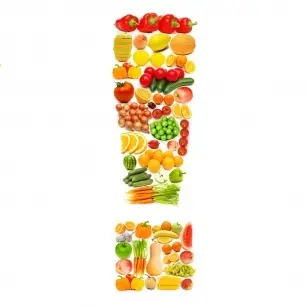
It is said that fruits and vegetables are the same health. This is not necessarily true, some of them eaten in winter or autumn can do us more harm than good. This is mainly due to spraying crops with pesticides and growing vegetables and fruits in unnatural conditions, where they lose their aroma and taste, and with them their nutritional values.
Low quality is guaranteed by imported plants, compared to seasonally available plants. Familiarize yourself with our list, in which we will present what it is better to give up in the cold and gray season.
Autumn and winter, and poor use of imported plants
- According to the Environmental Working Group, spinach is one of the vegetables most heavily contaminated with pesticides.
- When it comes to nutritional values, citrus is most often identified with a solid dose of vitamin C, but it does not necessarily strengthen our immunity. Since they occur naturally in Africa, Asia and warm regions of our continent, they cool our body. Although they bring relief in the middle of summer, they are not the best choice during flu and cold season.
- Kiwi grows in Greece, Italy, France and Asia. Like citrus, it is a cooling fruit. Due to calcium oxalates, it promotes kidney stones, and also provides a strong sensitizing substance, actinidin. May cause collapse in sensitive people.
- Potassium-rich tomatoes should theoretically be a source of health for us, because a deficiency of this element often leads to hypertension. Lycopene, on the other hand, is actually an antioxidant that reduces the adverse effects of free radicals on our body. Tomatoes eaten in season protect us from the development of cancer and atherosclerosis. However, when we eat tomatoes delivered in the autumn and winter season, we must take into account that they are grown in a large amount of fertilizers. Still green fruits go to transport, so they do not have time to acquire their health properties.
- Bananas eaten too often will most likely have a negative impact on our figure in a short time. They are rich in fructose, which instantly provides us with a dose of energy, raises insulin, which in turn knocks down the level of sugar. After eating bananas, we will quickly feel hunger and reach for the next snack, which, accompanied by a small dose of exercise, will lead to weight gain – well, the weather does not encourage you to go for a walk, rollerblading or cycling.
Harm of pesticides
According to a study, farmed fruits and vegetables with a high dose of pesticides, they can increase the risk of obesity in us, and also contribute to the formation of insulin resistance and diabetes. The main threats include for breast cancer, colon cancer and leukemia. Let’s enjoy the nutritional values of plants in the season appropriate for their harvest.









